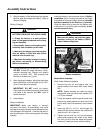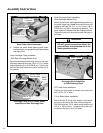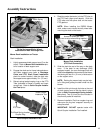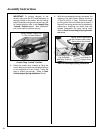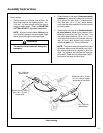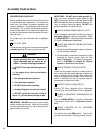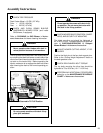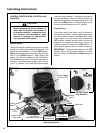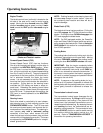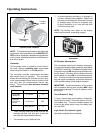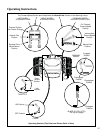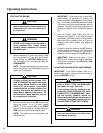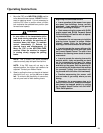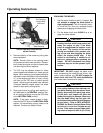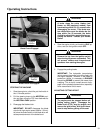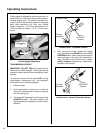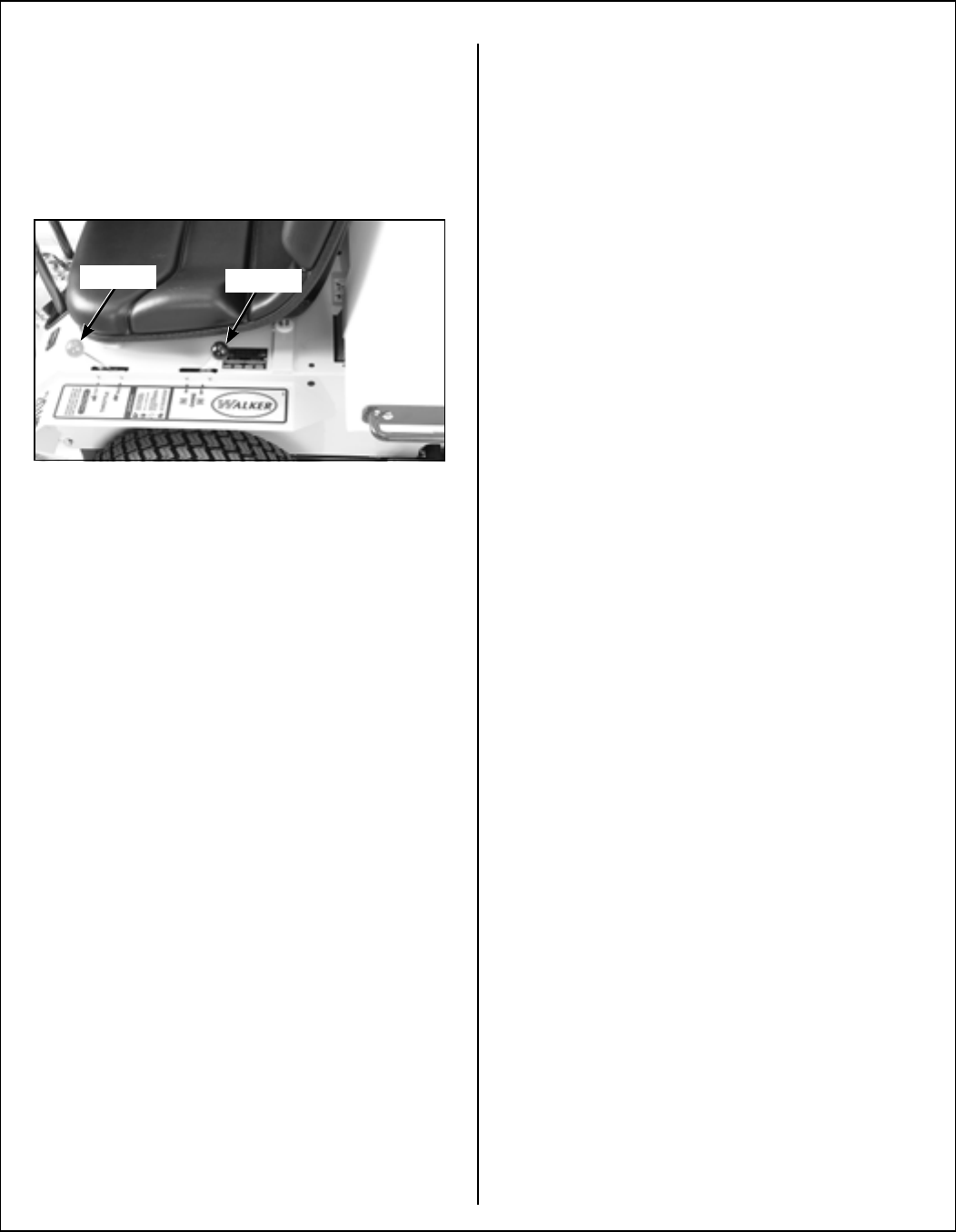
Operating Instructions
25
Engine Throttle
The throttle control lever (red knob) is located on the
left side of the seat and is used to control engine
speed. Moving the lever forward toward the FAST
position increases engine speed; moving it back-
ward toward the IDLE position decreases engine
speed.
Choke and Throttle Location
Forward Speed Control (FSC)
Forward Speed Control (FSC) has two functions:
One is to set forward travel speed, and the other is
to establish the NEUTRAL-PARK position. When
the FSC lever is moved into the FORWARD posi-
tion, a friction lock holds any forward speed setting
from 0 to 5 mph (0 to 8 km/h). The ground speed is
proportional to the lever position; the further the le-
ver is advanced forward, the faster the tractor
moves. It is not necessary to hold the FSC in posi-
tion since the friction lock maintains the selected le-
ver position. Pulling back on the steering levers
overrides the FSC setting and slows or stops for-
ward travel. Releasing the steering levers allows
the tractor to resume forward travel at the speed set
by the FSC lever. To stop and park the machine, the
FSC lever is moved backward to the NEUTRAL-
PARK position.
Steering Levers
Each drive wheel is controlled by its own indepen-
dent steering lever, for both steering function and
FORWARD/REVERSE motion. The FSC lever sets
the maximum forward speed, and also sets the for-
ward position of the steering levers. The steering le-
vers operate only with a backward pulling
movement of the lever, which causes the drive
wheel for that lever to first slow down, stop, and then
reverse with a full backward lever stroke. The levers
are released to the FORWARD position for “straight-
ahead” ground travel.
NOTE: Pushing forward on the steering levers will
not cause any change in tractor motion - there will
be no steering lever reaction and there will be no
machine damage.
Blade Clutch (PTO)
The blade clutch lever has two positions. Pulling the
lever UP engages the PTO that drives the mower
blades. Pushing the lever DOWN disengages the
PTO and engages the blade brake.
NOTE: On GHS equipped models, the Powerfil
®
motor and Grass-Pak
®
full signal switch are activat-
ed by engaging the blade clutch. Refer to Using the
GHS Catcher in this section for a complete descrip-
tion of GHS operation.
Parking Brake
The parking brake functions by locking a pin into the
hydrostatic transmission pinion gear teeth. Moving
the lever FORWARD engages the parking brake;
moving the lever BACKWARD releases the brake.
IMPORTANT: Stop the tractor completely before
engaging the parking brake The parking brake uses
a positive mechanical lock similar to the PARK po-
sition on an automotive automatic transmission. If
the tractor is moving when the brake is engaged, it
will result in sudden stoppage and possible internal
damage to the axle drive.
NOTE: If pressure on the parking brake pin (e.g.,
parked on a hill) makes it impossible to release the
parking brake with the parking brake lever, move the
mower gently forward or backward to release the
pin.
Transmission Lockout Levers
The transmission lockout levers disengage the hy-
drostatic transmissons. By lifting the lever on top of
the transmission and locking it into place with the
lockout cam, the hydrostatic transmissions are re-
leased to permit freewheeling. By releasing the cam
and lowering the lever, the transmissions are en-
gaged for normal operation. The transmission lever
in the LOCKOUT position is used to enable moving
the machine without the engine running (e.g., for
service). Refer to TRANSMISSION LOCKOUT in
this section for operating instructions.
Throttle
Choke



